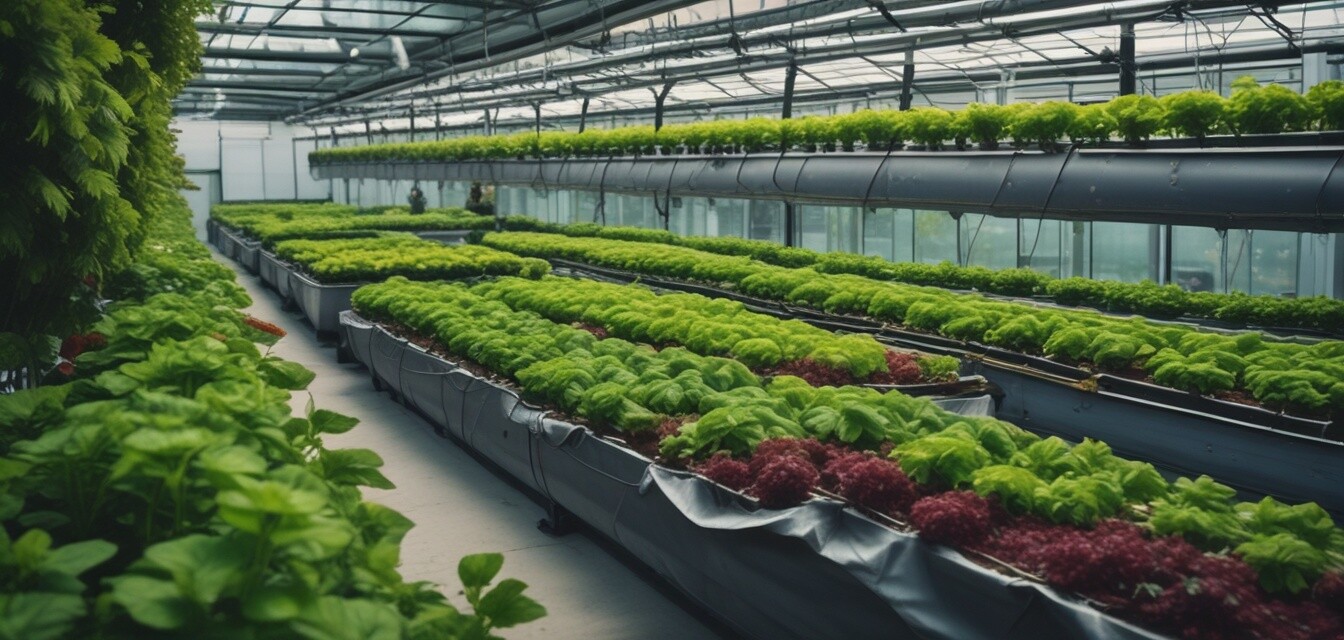
Community Partnerships in Hydroponics
Key Takeaways
- Community partnerships boost local food production through hydroponics.
- Collaboration enhances educational opportunities focused on sustainable farming.
- Successful models demonstrate the impact of shared resources in urban settings.
- Hydroponic systems address food insecurity while promoting environmental sustainability.
- Collaborations range from schools and nonprofits to businesses and urban farms.
As urbanization increases, many communities are turning to hydroponics for efficient and sustainable food production. This article investigates various case studies demonstrating how community partnerships leveraging hydroponic systems can address local food needs while fostering education and innovation. Let’s dive into the exciting world of hydroponics and examine how collaboration can create thriving agricultural ecosystems.
The Importance of Community Partnerships in Hydroponics
Community partnerships play a crucial role in enhancing the effectiveness of hydroponics for local food production. By bringing together diverse stakeholders, communities can create a holistic approach that benefits everyone involved.
Benefits of community partnerships
- Increased resources: Collaboration allows access to a broader pool of resources including funding, expertise, and physical spaces.
- Enhanced learning: Partnerships facilitate knowledge-sharing and education regarding hydroponic practices.
- Social cohesion: Working together fosters relationships within the community, helping build stronger networks.
- Environmental sustainability: Collaborative initiatives often promote eco-friendly practices in local agriculture.
Case Studies of Successful Community Partnerships
1. Local Schools and Hydroponic Gardens
Many schools have adopted hydroponic systems to provide students with hands-on learning experiences while boosting local food supply. These partnerships often integrate science and agriculture into the curriculum, emphasizing environmental stewardship and the importance of local food systems.
| School | Location | Partnership Type | Impact |
|---|---|---|---|
| Greenwood High School | Chicago, IL | Community nonprofit | Created a student-run hydroponic farm supplying local food pantries. |
| Sunnydale Elementary | Miami, FL | Local government | Implemented a hydroponic system in classrooms for STEM education. |
2. Urban Farms and Businesses
Urban farms are increasingly partnering with local businesses to create sustainable food production systems. By using hydroponic technology, these collaborations can yield a fresh supply of produce while reducing transportation emissions and serving as local supply chains.
| Farm | Partner Business | Location | Outcomes |
|---|---|---|---|
| Harvest Urban Farm | Green Grocer | Los Angeles, CA | Shared space and resources resulting in improved food access. |
| City Green Farm | Feast Catering | Portland, OR | Sustainable catering services from locally grown produce. |
3. Nonprofits and Community Initiatives
Nonprofit organizations have been pivotal in championing community gardening initiatives through hydroponics. They work to involve community members in growing food and provide education about sustainable practices.
| Nonprofit | Initiative | Location | Focus |
|---|---|---|---|
| Green Future Now | Hydroponics for All | New York, NY | Food security and educational workshops. |
| Urban Harvest | Community Hydroponic Gardens | Houston, TX | Promoting nutrition and local food systems. |
Challenges and Solutions
Despite the benefits, community partnerships in hydroponics face several challenges, including funding, knowledge gaps, and maintenance issues. However, these can often be overcome through collaboration and shared learning.
Pros
- Support for local food systems helps address food insecurity.
- Educational opportunities can inspire future generations of farmers.
- Community engagement fosters a sense of ownership and pride.
- Environmentally sustainable practices promote healthier ecosystems.
Cons
- Funding can be unpredictable, limiting project scalability.
- Knowledge gaps may hinder effective implementation.
- Maintenance and operational challenges can arise over time.
Looking Ahead: The Future of Community Hydroponics
The future of community partnerships in hydroponics looks promising. By embracing collaboration among schools, businesses, and organizations, we can create innovative solutions that address food production and foster education. The adaptability of hydroponic systems allows for continuous improvement and transformation within local communities.
As we move toward a more sustainable future, education about hydroponics and environmental responsibility will continue to play a significant role in urban settings. To stay informed about the latest developments in hydroponic gardening, check out our News and Trends section.
Tips for Building Successful Partnerships
- Identify local stakeholders who share a vision for sustainable agriculture.
- Clarify roles and responsibilities to ensure smooth collaboration.
- Host educational workshops to draw interest and build engagement.
- Utilize digital platforms to share resources and knowledge easily.
- Regularly assess and adapt partnerships based on community needs.
Community partnerships in hydroponics not only provide access to fresh, local produce but also promote a sustainable future for urban agriculture. Leveraging innovative practices and collaborative efforts can lead to successful initiatives that nourish both people and the planet. Together, we can cultivate a greener tomorrow.

